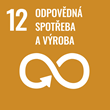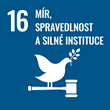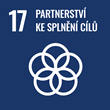Informace o projektu
Synthetic biology-guided engineering of Pseudomonas putida for biofluorination
(SinFonia)

- Kód projektu
- 814418
- Období řešení
- 1/2019 - 8/2023
- Investor / Programový rámec / typ projektu
-
Evropská unie
- Horizon 2020
- Leadership in enabling and industrial technologies (LEIT) (Industrial Leadership)
- Fakulta / Pracoviště MU
-
Přírodovědecká fakulta
- prof. Mgr. Jiří Damborský, Dr.
- MUDr. Jan Mičan
- RNDr. Michal Nemergut, PhD.
- Ing. Veronika Nováková
- RNDr. Martin Toul, Ph.D.
- Mgr. Adam Paulin Urminský
- Spolupracující organizace
-
Tartu Ülikool
University of St Andrews
University of Luxembourg
Agencia Estatal Consejo Superior
Technical University of Denmark
- Odpovědná osoba Dr. Pablo Iván Nikel
Bioplastech Ltd.
Biofaction KG
IN SRL Impresa Sociale
ifeu - Institut für Energie- und Umweltforschung Heidelberg gGmbH
Chemours Netherlands B.V.
Altar
Nature has hardly evolved biochemical reactions involving fluorine (F), the most abundant halogen on Earth. Organic compounds containing F (fluorochemicals) are, however, extremely relevant from an industrial point of view. Fluoropolymers are the main fluorochemicals in the market worldwide, and are exclusively synthesized using chemical methods. Moreover, current fluorination technologies usually involve corrosive and toxic reagents that have a negative impact on the environment. Designing sustainable bioprocesses based on alternative and safer fluorinating agents from renewable substrates is thus a long-sought-after, yet unfulfilled goal. SinFonia proposes to engineer the metabolically-versatile bacterium Pseudomonas putida to execute biofluorinations for generating novel fluoropolymers from renewable substrates.
P. putida KT2440, a generally regarded as safe microorganism, serves as an ideal microbial platform for F-dependent biochemical reactions due to its extraordinary resistance to harsh and stressful operating conditions. SinFonia will exploit natural selection to enhance bioproduction through a smart strain engineering approach in which bacterial growth will be coupled to biofluorination. Our target compounds are a whole family of fluorinated polyesters with enhanced physicochemical and material properties, with uses as self-cleaning surfaces, low-surface-energy coatings, bio-based lubricants, membranes for fuel cells, and anti-fouling materials. The versatile P. putida strains engineered during the project can be easily adapted to synthesize other added-value fluorochemicals. Unlike chemical processes, the source of F in our system will be NaF, an inexpensive and safe salt, and sugars as the main carbon source. In-depth analysis of all the environmental and economic benefits of the new fluorination technology, and interactive communication of social benefits associated with target products, are essential components of SinFonia.
Cíle udržitelného rozvoje
Masarykova univerzita se hlásí k cílům udržitelného rozvoje OSN, jejichž záměrem je do roku 2030 zlepšit podmínky a kvalitu života na naší planetě.
Publikace
Počet publikací: 30
2024
-
CoVAMPnet: Comparative Markov State Analysis for Studying Effects of Drug Candidates on Disordered Biomolecules
JACS AU, rok: 2024, ročník: 4, vydání: 6, DOI
2023
-
Advancing Enzyme's Stability and Catalytic Efficiency through Synergy of Force-Field Calculations, Evolutionary Analysis, and Machine Learning
ACS Catalysis, rok: 2023, ročník: 13, vydání: 19, DOI
-
Catalytic mechanism for Renilla-type luciferases
Nature Catalysis, rok: 2023, ročník: 6, vydání: 1, DOI
-
In-depth analysis of biocatalysts by microfluidics: An emerging source of data for machine learning
Biotechnology Advances, rok: 2023, ročník: 66, vydání: September 2023, DOI
-
Multimeric structure of a subfamily III haloalkane dehalogenase-like enzyme solved by combination of cryo-EM and x-ray crystallography
Protein Science, rok: 2023, ročník: 32, vydání: 10, DOI
2022
-
A Nonconventional Archaeal Fluorinase Identified by In SilicoMining for Enhanced Fluorine Biocatalysis br
ACS Catalysis, rok: 2022, ročník: 12, vydání: 11, DOI
-
Advanced database mining of efficient haloalkane dehalogenases by sequence and structure bioinformatics and microfluidics
Chem Catalysis, rok: 2022, ročník: 2, vydání: 10, DOI
-
Fast approximative methods for study of ligand transport and rational design of improved enzymes for biotechnologies
Biotechnology Advances, rok: 2022, ročník: 60, vydání: November, DOI
-
Fully automated virtual screening pipeline of FDA-approved drugs using Caver Web
Computational and Structural Biotechnology Journal, rok: 2022, ročník: 20, vydání: November 2022, DOI
-
LoopGrafter: a web tool for transplanting dynamical loops for protein engineering
Nucleic acids research, rok: 2022, ročník: 50, vydání: W1, DOI



